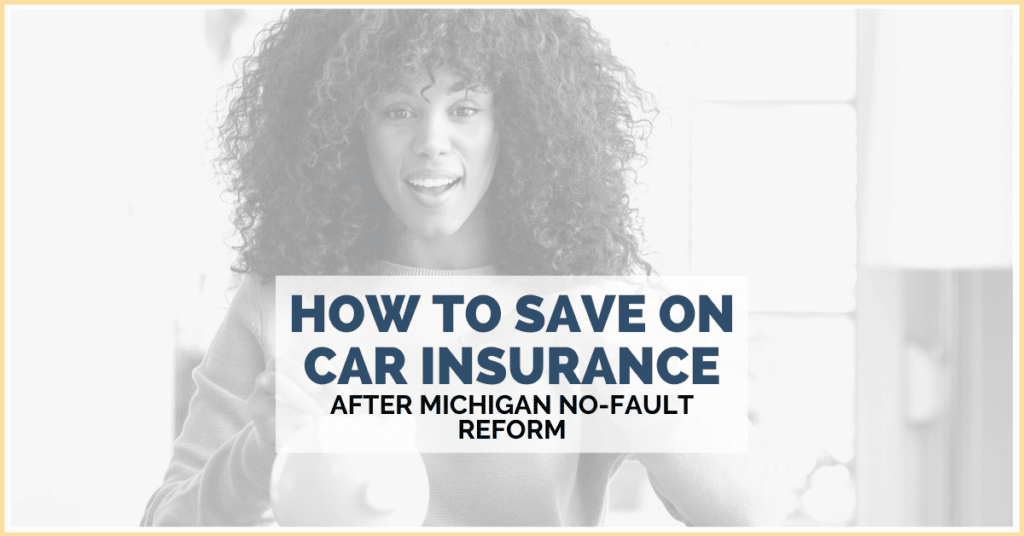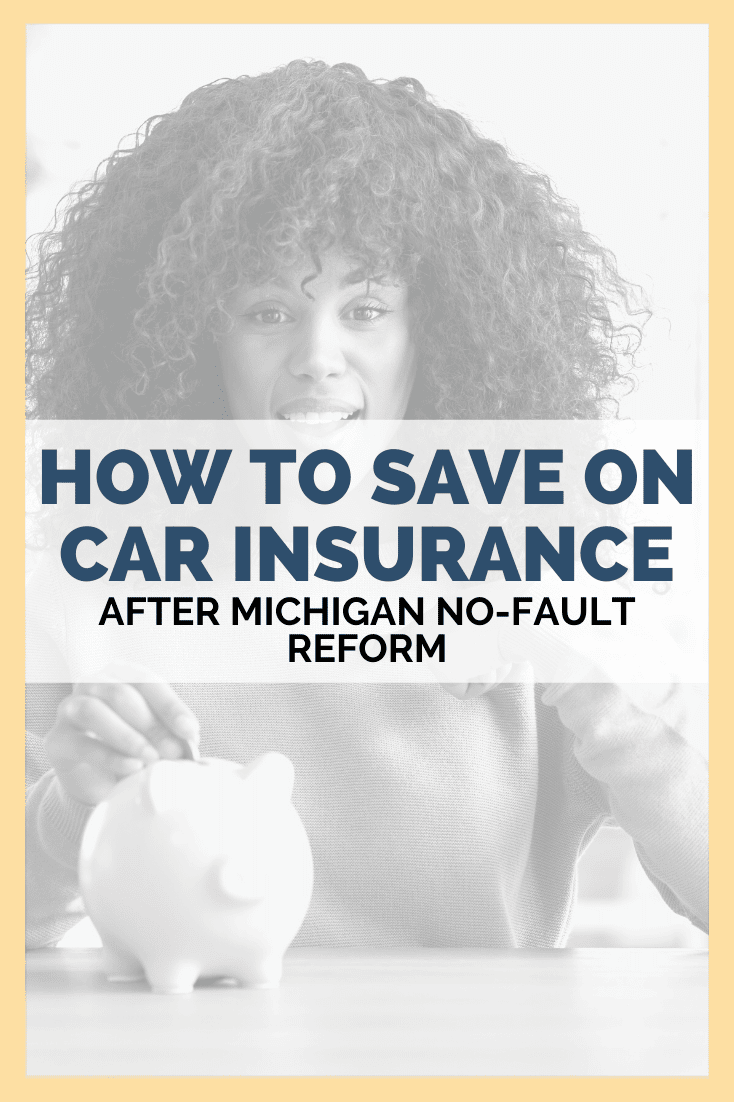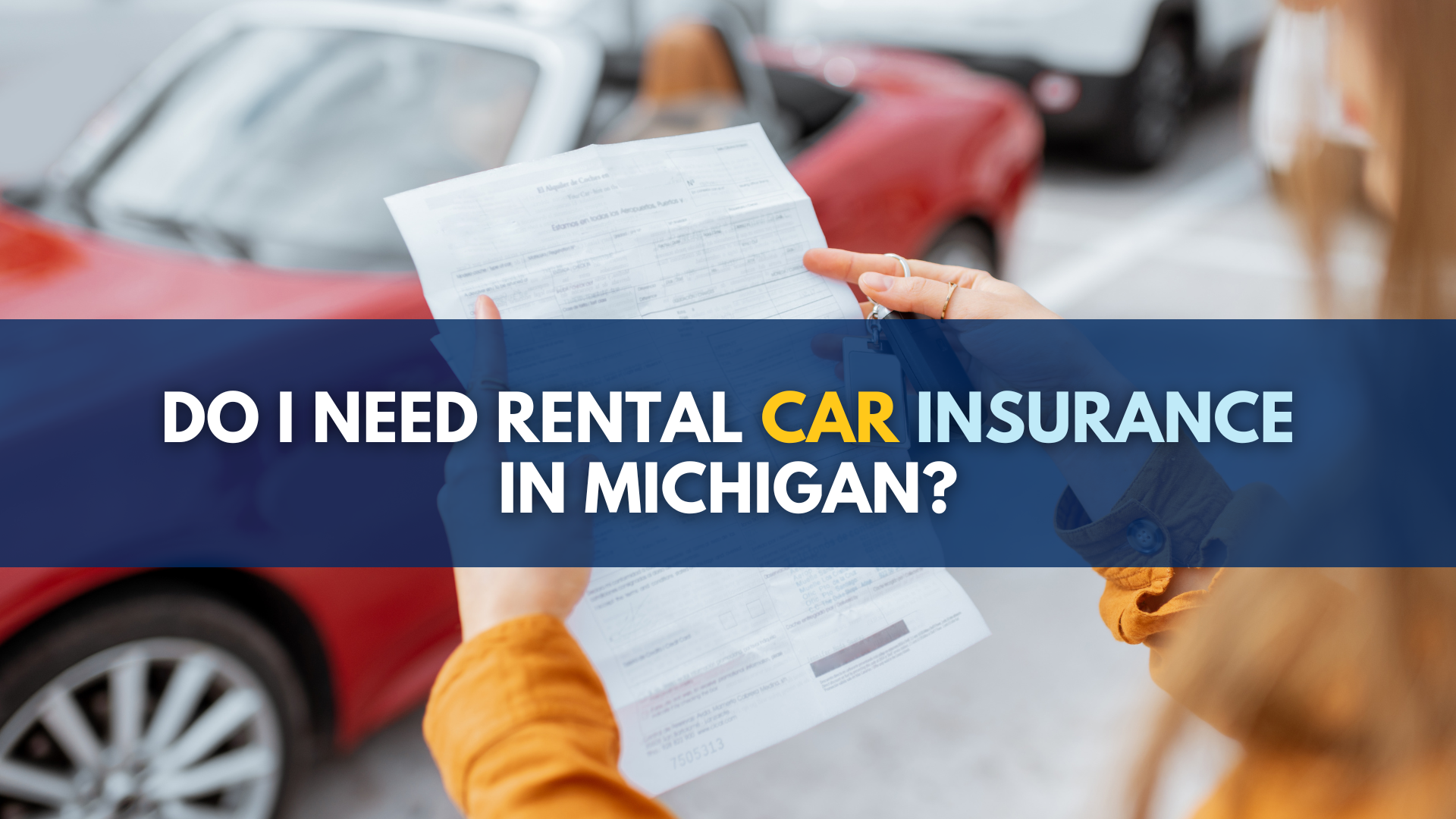
As I predicted, the new auto No-Fault law in Michigan has been great for insurance companies, who all reported record profits in 2020. But for consumers looking to save on car insurance in Michigan after No-Fault reform, the savings have been disappointing.
Today I will share some ways for drivers who were expecting more savings from No-Fault reform to realize more meaningful savings on the cost of car insurance in Michigan.
First, an “I told you so.” This is not to gloat, but to keep score. What is happening now is exactly what I predicted would happen in previous blogs and in media and television interviews. Michigan’s auto No-Fault reform has boosted profits of insurance companies even higher. A recent study just released found that Michigan’s four largest auto insurers – which comprise 50% of the state’s insurance market – “all reported windfall profits in 2020,” which is the first full year after reform took effect in June 2019. I should add that when the new medical fee schedule finally takes effect this July 1, 2021 as part of the 2019 law, it will further turbocharge insurance company profits, while likely curtailing significantly the quality and availability of medical care for accident victims. It will also drive many of the most important medical providers out of business and limit crash victims access to necessary medical care as many doctors will not accept the new fee schedule rates.
The so-called mandatory rate reductions on insurance premiums made for a good sound bite by politicians, but in reality it never could amount to meaningful savings on car insurance in Michigan for drivers who are struggling to both pay the bills AND protect their families.
As I stated in my previous blog post, “Michigan Auto Insurance Reform Savings Debunked”:
“Now that we have a new Michigan No-Fault insurance law, most people will be disappointed that the Michigan auto insurance reform will fail to deliver any meaningful, long-term savings. . . . The savings we are going to see is limited only to the personal injury protection, or PIP portion of [drivers’ car insurance] bill . . . So any savings we are going to see is limited to this 35 percent of your no-fault bill. . . . Roughly sixty-five percent of your auto insurance bill will be completely unaffected by the new law. Even if you elect the very lowest PIP cap option of $50,000, that only saves you 45% of the roughly 35% of your bill that represents PIP (Personal Injury Protection No-Fault benefits).”
Instead, what we have now is a system where drivers have given up permanent necessary medical care for catastrophic accident injuries in return for relatively minor savings on their insurance premiums. I should add that the savings on car insurance in Michigan that drivers are seeing are also not permanent. Insurers will be free to jack up rates again in a few short years.
To learn more, please check out our video:
I have previously given my own recommendations as an auto accident attorney about the insurance coverages that drivers should carry to best protect themselves and their families, which you can review here with your agent.
Two years later, it is clear that car insurance in Michigan is still not affordable after the new auto law, and that those savings come at a steep cost: it comes at the cost of drivers’ health, safety and well-being in the even that tragedy strikes and they or a loved one are seriously injured in an accident.
How to save money on car insurance in Michigan with unlimited No-Fault medical coverage
The best protection for drivers and their families in the event they are injured in an accident is having unlimited No-Fault medical coverage. Unfortunately, car insurance savings in Michigan will be minimal, if at all for drivers who choose unlimited No-Fault medical coverage.
Under the mandatory rate reductions, insurance companies are required to adjust their rates on unlimited No-Fault medical coverage so that there is a 10% “average reduction per vehicle” on premiums. (MCL 500.2111f(2)(d))
In reality, that guarantees the individual driver absolutely nothing. You, personally, are not guaranteed a 10% reduction on your premium. To comply with the law, your insurance company just needs to make enough adjustments on ALL of its policies so that they have an overall “average reduction” on all of the insurer’s premiums. As if the illusion of guaranteed savings is not bad enough, No-Fault reform allows your insurance company to actually increase your premiums. (MCL 500.2111f(9))
The law also says that an insurance company “shall pass on . . . savings realized” from the new No-Fault fee schedule in its rate filings with the Insurance Commissioner. (MCL 500.2111f(8)
Don’t hold your breath on that. Remember, because of the new No-Fault fee schedule, unlimited medical No-Fault coverage is actually no longer unlimited. As an auto accident lawyer, I’m already seeing firsthand how the new fee schedule that takes effect on July 1, 2021 is already undermining access to medical coverage for accident victims. Even if consumers chose unlimited No-Fault medical, they will still be limited by the fee schedule’s 56-hours-per-week restriction on in-home, family-provided attendant care. And they will no longer be able to pay for their providers’ services because the fee schedule limits their buying power to only 55% of what their providers charge. So either the accident victims will have to pay out-of-pocket for the difference, out of their tort recovery if they were injured in an automobile by another driver, or accident victims will have to go without vital care and treatment, such as rehabilitation for spinal cord injuries and traumatic brain injuries.
What good is “unlimited” if victims cannot pay what top medical specialists charge?
Or if medical providers won’t treat patients for what the new No-Fault fee schedule will pay?
And, as Mitch Albom has written, what good is “unlimited” if medical providers must go out of business because the new reimbursement rates for catastrophic medical care are insufficient to keep the doors open?
Comparison shop for the best premiums
Your best bet for how to save on car insurance in Michigan is to comparison shop every year. The best way to do this is to use an independent insurance agency that has 10 or more insurance companies to quote rates for you to consider. You will be astonished at the savings. Think of it as paying for cable when the only cable provider in your area is Comcast, or paying for cable when there are multiple companies that offer service. Working with an independent agency ensures you will get the best prices. Insurance agencies that quote from only one insurance company, like State Farm or Allstate, can’t match the best prices.
You will want quotes to include:
- The difference in premium for each of the No-Fault PIP medical coverage levels (but I still strongly recommend you pay more for unlimited No-Fault medical coverage).
- The difference in premium if you get coordinated coverage where health insurance is primary.
- The difference in premium depending on which deductible you choose.
- The difference in premium if you drop collision, comprehensive, mini tort, UM and UIM.
How to save on car insurance in Michigan by opting out of No-Fault medical coverage
You may be able to save money on car insurance in Michigan by eliminating your No-Fault medical coverage premium if you select the PIP medical “exclusion” that is available to drivers with qualified health coverage who choose the $250,000 No-Fault PIP medical benefits coverage level. (MCL 500.3109a(2); 500.3107c(1)(b)).
Provided that you and your spouse and any relatives who live in your home have qualified health coverage, selecting this “exclusion” to opt out of No-Fault medical coverage means that your premium for No-Fault medical coverage “must be reduced by 100%.” (MCL 500.3109a(2)(a))
This means that you will need to rely exclusively on your health insurance for medical expenses and costs after an accident, not No-Fault. Drivers – and their spouses and resident relatives – who avail themselves of this exclusion will “not [be] eligible for personal protection benefits under the insurance policy.” (MCL 500.3109a(2)(c))
Your health insurance plan or coverage qualifies as “qualified health coverage” under Michigan’s No-Fault insurance law if it “does not exclude or limit coverage for injuries related to motor vehicle accidents” and “[a]ny annual deductible for the coverage is $6,000.00 or less per individual.” (MCL 500.3107d(7)(b)(i))
How to save on car insurance in Michigan by selecting coordinated coverage
You may be able to save money on car insurance by selecting coordinated coverage, which would entitle you to “a reduced premium.” With coordinated coverage, your health insurance would be first in line before your No-Fault insurance to pay for any accident-related medical expenses. (MCL 500.3109a(1))
The law states that the “amount of a premium reduction . . . must appear in a conspicuous manner in the declarations for the policy, and be expressed as a dollar amount or a percentage.” (MCL 500.3109a(4))
What you need to know about relying on health insurance
Before No-Fault reform, health insurance did not begin to compare to the medical coverage provided under the No-Fault law. However, with the new coverage levels coupled with the new and extremely harsh medical fee schedule that takes effect on July 1, 2021 health insurance by necessity must be considered.
With the “exclusion” and coordination options I discuss above, health insurance would effectively step in and fill the void that unlimited No-Fault medical coverage (with NO fee schedule) used to fill.
On the one hand, that is good because under the federal Affordable Care Act, health insurance plans cannot impose lifetime or annual limits on coverage.
On the other hand, health insurance does not always cover all of the necessary treatment, care and services that seriously injured accident victims need to recover from spinal cord injuries and traumatic brain injuries.
Additionally, for many employer-provided plans, accident victims will have to contend with ERISA liens on their third-party recoveries for pain and suffering compensation, which some health insurance plans use to recoup the money they have spent on medical expenses and costs.
How to save on car insurance in Michigan by selecting a deductible
You may be able to save money on car insurance in Michigan by selecting a deductible on your No-Fault medical coverage. You will save more if you select a higher deductible. The law requires that “a deductible of a specified dollar amount” must be accompanied by “appropriately reduced premium rates.” (MCL 500.3109(3))
How to save on car insurance in Michigan by selecting the managed care option
I do not recommend you select the managed care option, but doing so may save you some on car insurance in Michigan because the law requires that auto insurers “provide a discount that reflects reasonably anticipated reductions in losses or expenses or both.” (MCL 500.3183(b))
However, I continue to strongly advise against selecting the managed care option to save on car insurance in Michigan. You can read why here.
Savings or no savings, the managed care option will do nothing to provide better protection or better medical treatment and care for accident victims. If anything, based on the doctors these insurance companies will use for the managed care option, accident victims will be significantly worse off with managed care. From time to time I put my cross-examinations of some of Michigan’s most notorious and nasty insurance medical examiners on this blog for people to read and understand just how biased and horrible they can be during these so-called “independent medical examinations.” These will largely be the same doctors that most insurers will be using for the new managed care option.
As with the worst of HMOs, car accident victims will have no choice of doctor. You will be stuck with a “cut-off” doctor. Additionally, with managed care, victims will also be required to get written preauthorization in advance from the insurance company for all visits, diagnostic tests, procedures, surgeries and treatment. If a person fails to do so, the insurer can deny payment.
Cancelling collision coverage
You may be able to save the most on your car insurance in Michigan by cancelling your collision coverage. For most people, collision coverage constitutes as much as 50% of your total insurance premium.
However, this may not be an option if you have a loan on your vehicle or if you lease.
I realize this is probably the most controversial part of my suggestions on how to save on car insurance in Michigan, but understand that collision coverage is the single biggest driver of costs and the single biggest part of your car insurance premium.
How to save on car insurance in Michigan by cancelling comprehensive
You may be able to save on car insurance in Michigan by cancelling your comprehensive coverage, but the savings will be minimal because the cost of this coverage is so relatively insignificant.
Choosing lower liability limits
You may be able to save on car insurance in Michigan by purchasing lower liability insurance limits – which you are able to do under 500.3009(1)(a) and (b), (5)) – but as I’ve written previously, as an auto accident attorney, I strongly recommend against this.
Because of the new No-Fault reform law and the new PIP caps, your own liability risk is higher than ever before. The savings on car insurance in Michigan for choosing a lower liability limits of $50,000 instead of the new minimum RBI liability limits of $250,000 are not significant and they do not outweigh your increased exposure if you cause a serious auto accident. If you injure someone who has a lower PIP medical cap level, you could be liable for hundreds of thousands or millions of dollars of medical bills for this person’s lifetime care. The liability part of your bill is actually remarkably inexpensive, and the increased protection it offers for you and your family is well worth it.
Have questions about how to save money on car insurance in Michigan after No-Fault reform?
If you have questions about how to save on car insurance in Michigan after No-Fault reform, please read the links to the blogs I’ve included in this post. If you were injured in an accident and would like to speak with an experienced auto accident attorney, call toll free anytime 24/7 at (800) 968-1001 for a free consultation with one of our attorneys. You can also get help from an experienced accident attorney by visiting our contact page or you can use the chat feature on our website. We are also happy to recommend an independent insurance agency for you to comparison shop and get quotes to protect you and your family.




So, the Michigan car insurance companies have made a good profit. I am very keen to know about this because I will be working with a very well known Brisbane lawyer and somehow he has asked me to get this information so he can clear a few things on insurance and understand the difference. Well, my duty is to get this information to him in this post. It helped me a lot. Hoping for the best. Thanks.